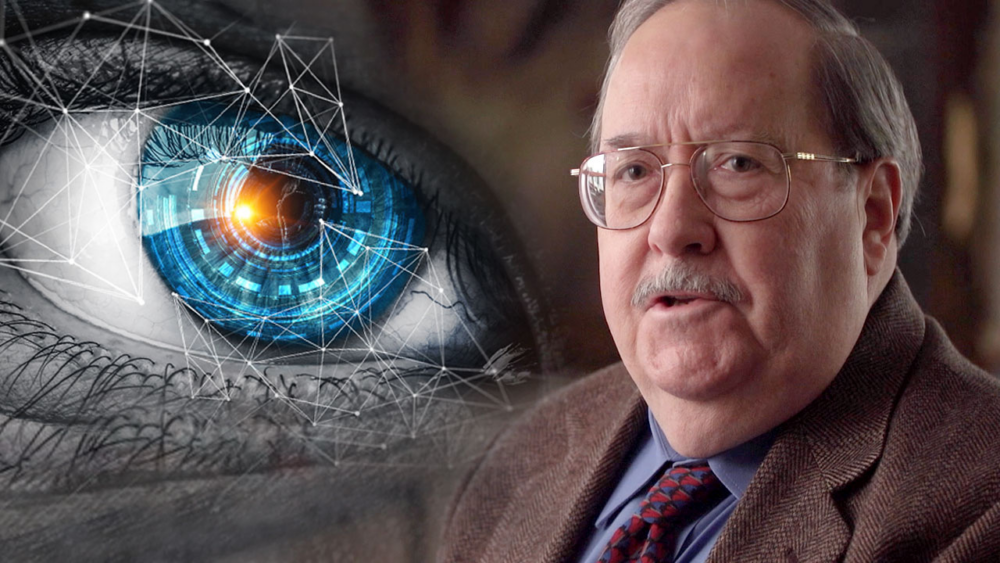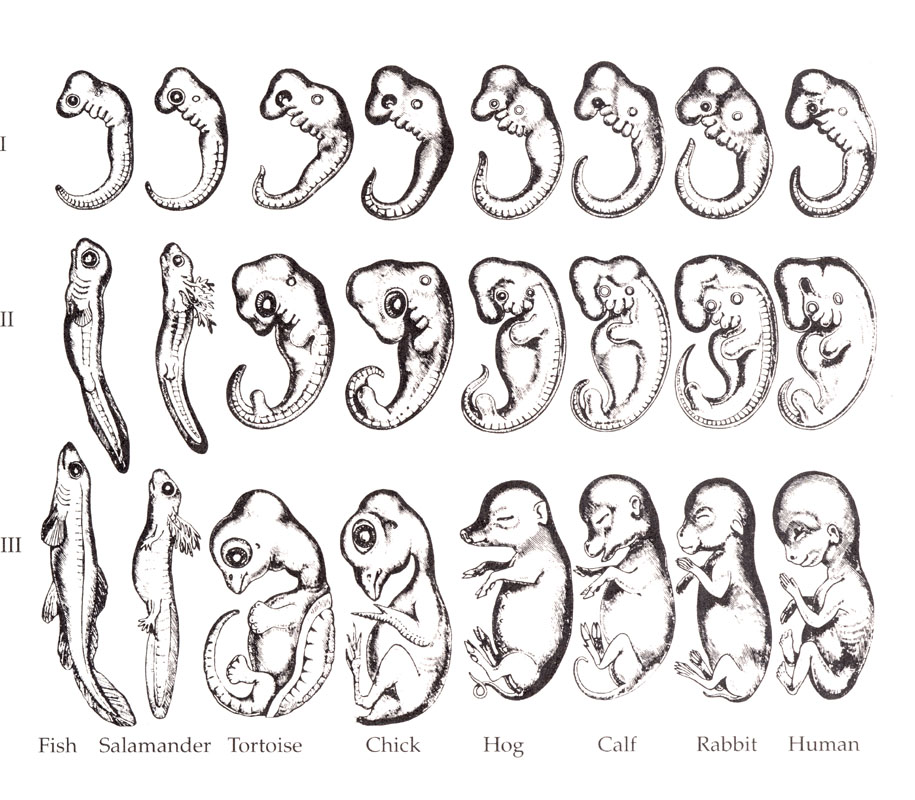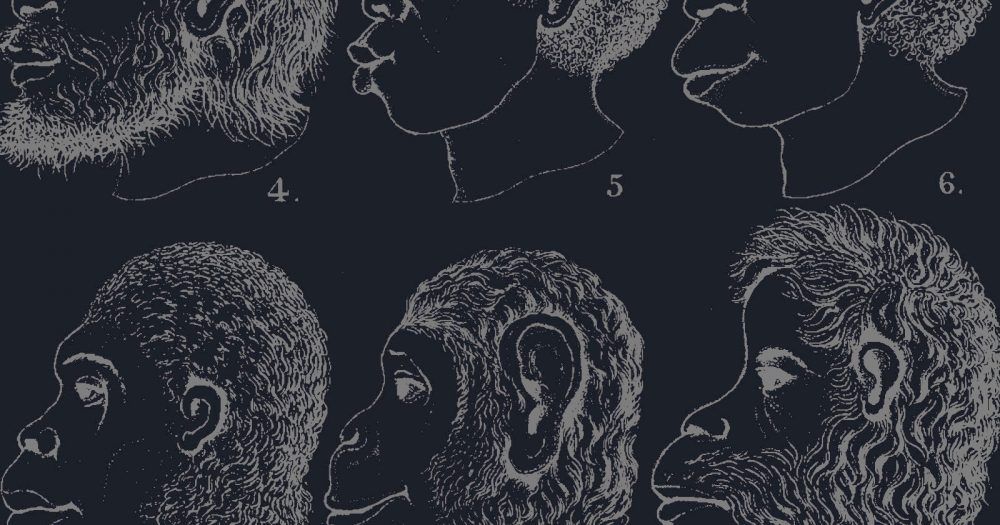


Tom Woodward on the Impact of Icons of Evolution

Eric Metaxas and Richard Weikart Spotlight Darwinian Racism
Today’s ID the Future brings listeners a lively conversation between radio host and bestselling author Eric Metaxas and historian Richard Weikart about Weikart’s new book, Darwinian Racism: How Darwinism Influenced Hitler, Nazism, and White Nationalism. Weikart provides a quick flyover of the evidence that the outlook of Hitler, the Nazis, and contemporary white nationalists is significantly shaped by Darwinism and the arguments of early Darwinists. Metaxas and Weikart then contrast the Darwinian foundation for morality with the Judeo-Christian foundation, which holds that all humans are made in the image of God and therefore possess inherent worth, regardless of race and regardless of one’s “fitness.” This episode is reposted here, with permission, from The Eric Metaxas Show. Check out Weikart’s new Read More ›

Darwinian Racism Webinar, Pt. 2
Today’s ID the Future features the second half of a recent webinar spotlighting historian Richard Weikart and his new book, Darwinian Racism: How Darwinism Influenced Hitler, Nazism, and White Nationalism. Here Weikart fields questions from the webinar audience. Along the way Weikart touches on the connection between Darwinism and scientific racism, the objection that Darwinism, properly understood, doesn’t support scientific racism (much less Nazi racism), the racism inherent in Darwin’s own writings and those of prominent early Darwinists such as Ernst Haeckel, and more recent manifestations of Darwinian-inspired scientific racism both academic and populist. This and much more is explored in Weikart’s new book, available here. And for scientific reasons to reject Darwinism along with its racists implications, jump over Read More ›

New Book on How Darwinism Fueled Nazi Racism, White Nationalism
Today’s ID the Future features the newly released Darwinian Racism: How Darwinism Influenced Hitler, Nazism, and White Nationalism by distinguished historian Richard Weikart. Here Andrew McDiarmid reads from the introduction and chapter one. Weikart begins his book by revisiting the harrowing Columbine High School mass shooting and underscoring the curious fact that one of the mass shooters, a white nationalist, claimed inspiration from not just Adolf Hitler but also Charles Darwin. Since Darwin was a peaceable Victorian English gentleman and naturalist, what possible connection could there be between Darwin on the one hand and Hitler and contemporary white nationalism on the other? Weikart shows that the connection is in fact quite clear from the writings of Hitler, Darwin himself, and Read More ›

Richard Weikart on Scientific Racism and the War on Humanity
Today’s ID the Future again spotlights The Comprehensive Guide to Science and Faith. Historian Richard Weikart and host Casey Luskin discuss Weikart’s contribution to the new anthology, his essay “How Evil Has Been Done in the Name of Science.” As Weikart explains, over the past century and a half, science has been misused to fuel racist policies and undermine human rights. Darwinian ideas helped lay the groundwork for Nazi ideology in Germany. And we shouldn’t imagine the problem was restricted to Nazi Germany. Scientific racism also reared its head in the United States, including in the long-running and infamous Tuskegee syphilis experiment. More broadly, a marriage of scientism and evolutionary thinking continues to undermine the idea of inherent human worth Read More ›

Richard Weikart Reviews New Book on Social Darwinism
In today’s ID the Future historian Richard Weikart (Cal State Stanislaus) dissects a new Cambridge University Press book on social Darwinism by Jeffrey O’Connell and Michael Ruse. Weikart, author of Hitler’s Ethic, From Darwin to Hitler, Hitler’s Religion, and The Death of Humanity,* says that a major shortcoming of the new book is the authors’ attempt to put as much distance as possible between Darwin and eugenics thinking, and between Darwin and Hitler. The new book paints Darwin follower Herbert Spencer as the eugenics-championing bad guy and posits that Darwin and Darwinism had little or no influence on Hitler’s warped master race ethic. Weikart patiently highlights some key evidence to the contrary, statements front and center in Hitler’s writing. Did Read More ›

Aeschliman Talks C. S. Lewis, The Abolition of Man, and That Hideous Strength
Richard Weikart on Michael Ruse’s “Compromise” with Christianity
On this episode of ID the Future, From Darwin to Hitler author and historian Richard Weikart returns to his conversation with Mike Keas about a recent book on Darwinism, Christianity, and war by Michael Ruse. Ruse aims at a surprising conclusion in this book.
Read More ›
Darwinism and Politics: Bruce Chapman’s New Book Politicians
On this episode of ID the Future, Andrew McDiarmid reads from chapter 12 of Discovery Institute co-founder Bruce Chapman’s new book, Politicians: The Worst Kind of People to Run the Government, Except for All the Others. In this excerpt, Chapman argues that Darwinism has disfigured and demoralized political life in Europe and America for more than a century.
Read More ›